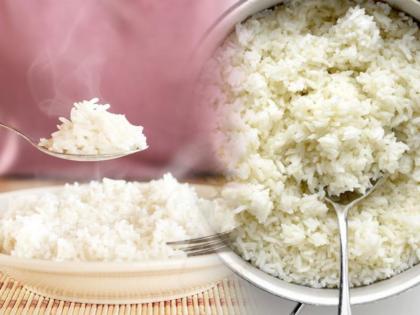Can Rice at Night Cause Weight Gain and Other Health Problems?
By Lokmat English Desk | Updated: January 19, 2025 18:59 IST2025-01-19T18:59:03+5:302025-01-19T18:59:39+5:30
While rice is a staple food in many parts of India, health experts suggest that it may not be ...

Can Rice at Night Cause Weight Gain and Other Health Problems?
While rice is a staple food in many parts of India, health experts suggest that it may not be the best option for dinner, particularly for certain individuals. Here are some of the reasons why eating rice at night can have negative effects on health:
Gut Health Issues: Consuming rice at night can lead to digestive issues such as gas, bloating, and acidity. This is because rice is high in carbohydrates, and consuming heavy carbs at night may hinder proper digestion, leading to discomfort.
Weight Gain: Eating rice for dinner can contribute to weight gain. Since rice is calorie-dense, consuming it at night when the body is less active can lead to the accumulation of excess calories, which may result in permanent obesity. Obesity, in turn, invites various health complications like heart disease and high blood pressure.
Respiratory Problems: Individuals with shortness of breath or difficulty breathing should avoid eating rice at night. Some health experts believe that eating rice can aggravate respiratory conditions, leading to discomfort and making it harder to breathe, particularly while lying down.
Throat Irritation and Sinus Issues: Rice can also cause throat irritation, especially in individuals prone to sinus problems. This can lead to further complications like congestion and sinus infections, making it uncomfortable for some people.
Diabetes Concerns: For diabetic individuals, eating rice at night can lead to an increase in blood sugar levels. Rice has a high glycemic index, which can cause a rapid spike in blood sugar, making it difficult for diabetics to manage their condition effectively. Therefore, it's advisable for diabetic patients to limit rice consumption, particularly at night.
Rice can be part of a healthy diet, it's essential to consider when and how much you consume. If you have digestive issues, are trying to lose weight, or have respiratory or diabetic concerns, it may be wise to avoid rice at night and opt for lighter, more digestible foods instead.
Open in app